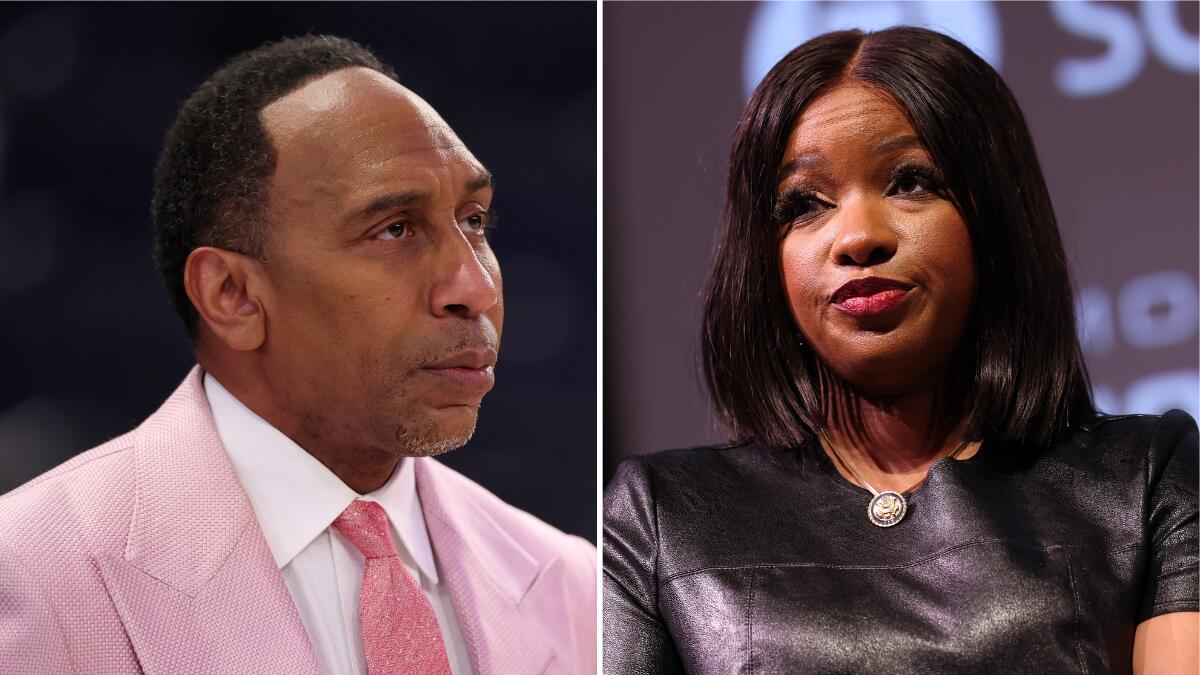
A Conversation About Criticism and Apology
Representative Jasmine Crockett has publicly addressed the recent backlash she faced following criticism from Stephen A. Smith, a well-known sports analyst and political commentator. This exchange has sparked significant discussion about the nature of public discourse, particularly when it involves Black leaders and their approaches to politics.
During an interview with The Shade Room, Crockett expressed her disappointment in Smith’s comments, which were initially seen as dismissive of her work. “When I first heard the comments, I was disappointed,” she said. “Simply because it was a Black man.” Her remarks highlighted the sensitivity surrounding how Black leaders are often scrutinized, especially when they speak out against prominent figures like former President Donald Trump.
Crockett emphasized that she has never had any personal interactions with Smith, stating, “I’ve never had a conversation with Stephen A. a day in my life.” Despite this lack of direct communication, Smith’s comments still resonated with her, leading to a broader conversation about the responsibilities of public figures and the impact of their words.
Smith's Initial Criticism and Backlash
Earlier this month, Smith criticized Crockett’s approach to politics, suggesting that she focused more on attacking Trump than on addressing the needs of her constituents in Texas. On his podcast, "Straight Shooter," he questioned whether her strategy was effective for her district. “Is that going to help your district in Texas?” he asked. He also raised concerns about whether she was hindering efforts to achieve legislative goals instead of working towards them.
In a follow-up episode, Smith doubled down on his stance, even as he faced backlash for his comments. “I have nothing but respect for her,” he said. “I just disagree on what she's making headlines for because I think it's counterproductive to the ultimate goal.” However, this position did not go unchallenged, and many critics pointed out the potential harm of his remarks, especially given the current political climate.
Reversing Course and Offering an Apology
Last week, Smith reversed his position and issued a public apology for his comments, acknowledging that his remarks may have contributed to further attacks on Crockett by Trump. “I get it now with Trump feeding into that nonsense, giving him fodder or ammunition to continue to go out there and talk about our Black women that way,” he said on his podcast. “I don’t like that at all. I don’t want to be associated with nothing like that … and I apologize because I respect the hell out of Jasmine Crockett and what she has accomplished.”
He added, “I can look Jasmine Crockett in the face and say, ‘I’m sorry for any kind of noise I caused in your direction.’ She is accomplished and smart and has an incredible challenge working in this political climate.”
Crockett's Response and Moving Forward
In her interview with The Shade Room, Crockett acknowledged that she expects criticism from political opponents, but not from someone like Smith. “In the work that I do, I anticipate there will be plenty of racists or people on the other side who will criticize me — not the substance of my work, not the legislation, not the programs I run in my district,” she said. “But for a Black man, especially in a time when Black women are under attack … I just felt a way.”
When asked if she accepted Smith’s apology, Crockett laughed and indicated that she was ready to move on. “If you hadn’t gotten smoke, would you have done it?” she said. “It’s done. We’re moving on.”
She also emphasized that her constituents understand the real threats facing their community. “My constituents understand that Trump is the big threat — not the way I talk,” she added. “I appreciate that people spoke out. I didn’t really have to say anything.”
This exchange highlights the complex dynamics of public discourse, especially when it involves Black leaders and their engagement with media personalities. It also underscores the importance of accountability and the need for respectful dialogue in political conversations.

Post a Comment